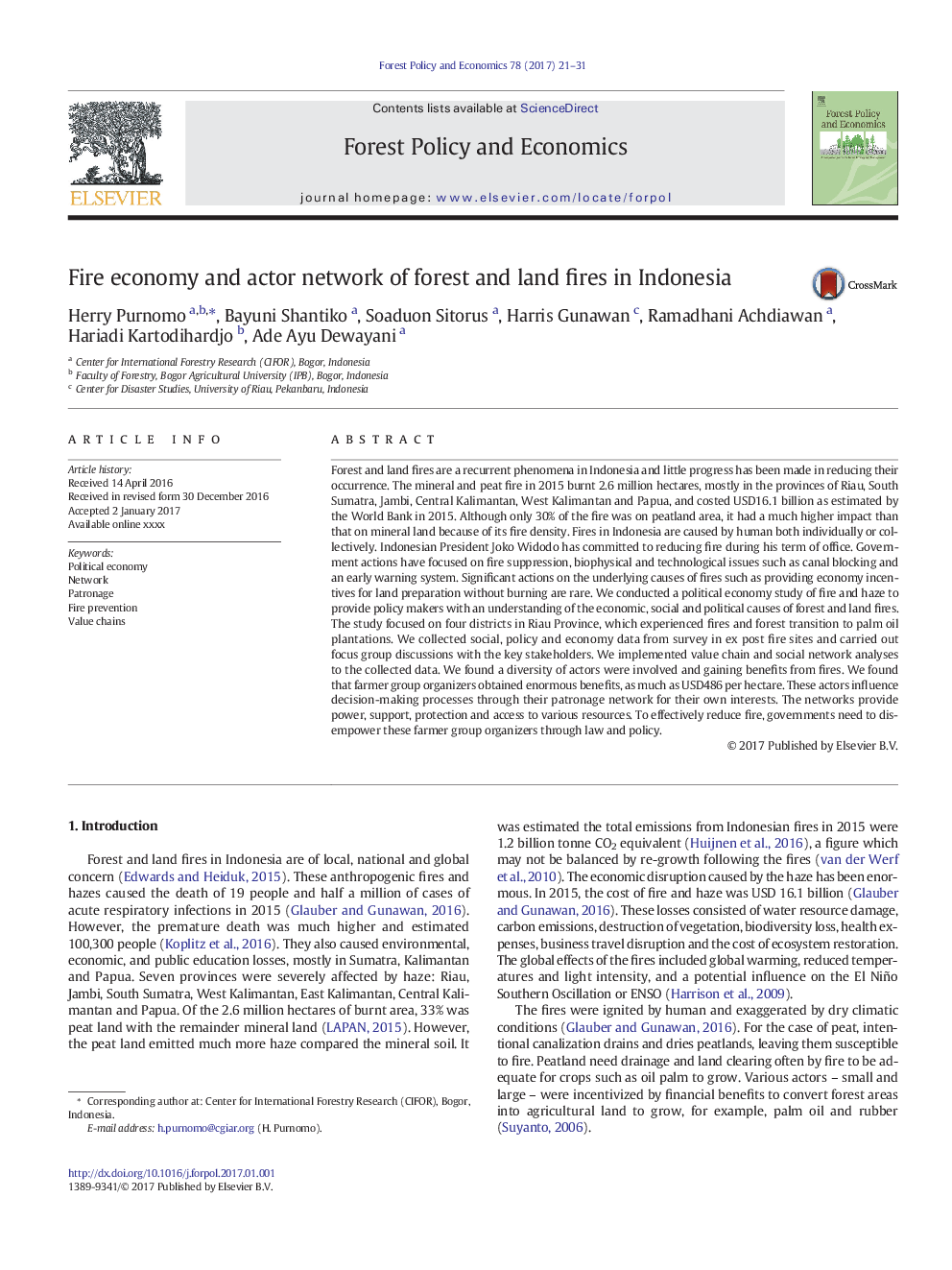ترجمه فارسی عنوان مقاله
آتش سوزی و شبکه بازیگر آتش سوزی جنگل ها و زمین در اندونزی
عنوان انگلیسی
Fire economy and actor network of forest and land fires in Indonesia
| کد مقاله | سال انتشار | تعداد صفحات مقاله انگلیسی |
|---|---|---|
| 86435 | 2017 | 11 صفحه PDF |
منبع

Publisher : Elsevier - Science Direct (الزویر - ساینس دایرکت)
Journal : Forest Policy and Economics, Volume 78, May 2017, Pages 21-31
ترجمه کلمات کلیدی
اقتصاد سیاسی، شبکه، حامی، پیشگیری از آتش سوزی، زنجیره ارزش،
کلمات کلیدی انگلیسی
Political economy; Network; Patronage; Fire prevention; Value chains;

